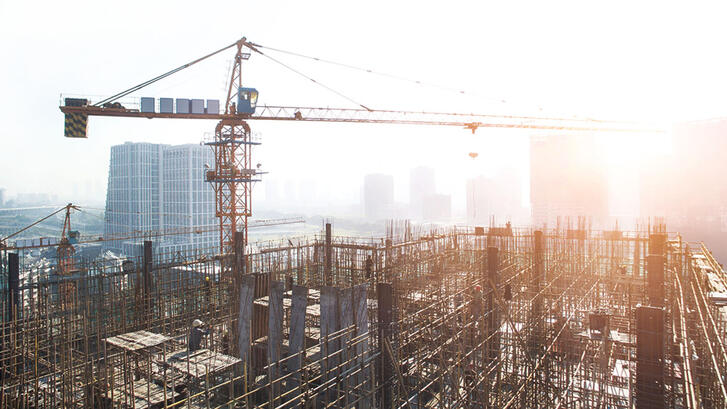Bo Li on The Macroeconomics of Climate Change: Key Issues, Policy Responses, and International Cooperation
Bo Li on The Macroeconomics of Climate Change: Key Issues, Policy Responses, and International Cooperation
In an event co-sponsored by Stanford Libraries and SCCEI, Bo Li, Deputy Managing Director at the IMF, expressed his concerns on the global climate crisis and shared insights on the macroeconomic impacts of climate change and steps to mitigate the worst of the crisis.

Stanford alum and Deputy Managing Director at the IMF, Bo Li, joined Stanford Libraries and Stanford Center on China’s Economy and Institutions on April 24 as the guest speaker of the 2024 Dr. Sam-Chung Hsieh Memorial Lecture. During the event, Li expressed his concerns on the global climate crisis and shared insights on the macroeconomic impacts of climate change.
Li opened his speech by asking the audience to raise their hands if they have personally witnessed or experienced the effects of climate change in the recent past. Every single person raised their hand. Li shared that one of the most sobering parts of his job is to hear directly from people of all walks of life how climate change directly impacts their families, communities, and countries. He passionately impressed that “climate change is a major threat to global economic stability, growth, and jobs. Not to mention, lives and health."
Li went on to outline three steps the world should immediately take to mitigate the worst of the climate crisis, for the “cost of inaction will be an order of magnitude higher than the cost of action.” He suggests the following areas of action: 1) All countries must target more ambitious policies to cut emissions; 2) There needs to be a focus on climate finance; 3) Technological innovation and diffusion must continue. In order to address this crisis, countries large and small, wealthy and poor, must work together – Global threats like climate change demand global cooperation. Li concluded his remarks with a call to action, he encouraged everyone to “speak up, hold our leaders accountable, help us make more meaningful progress on this climate crisis.”
For more details on how Li suggests tackling the climate crisis and why it’s so important to do so, watch the recorded event here:
Photos from the Event























